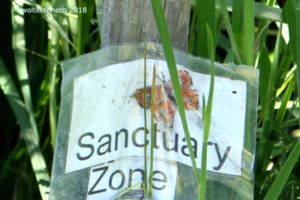Birdie Transformation Program
Week 011
 Tread Softly.
Tread Softly.
This really is the central message for this coming week: tread softly, so as not to scare the baby.
One could say: be gentle with yourself, be kind to yourself.
In movement – be deliberate and measured, the actual message was: slow way down, way way down.
Study and observe.
The process intensifies and rather than getting a break, we are called to be fiercely present, to pay attention to what is actually happening in and with our body sensation, emotions and thoughts.
The process this week is very much like chapter 4 of the HBM (From The Human Biological Machine as a transformational Apparatus by E.J. Gold), collecting data for the sleep of the machine, only it is rephrased like this:
Notice your automatic programs, whether it is movement, emotions or thoughts.
Movements might be: gesticulating with your hands, wiggling your legs, walking a certain way, rolling your eyes.
Emotions: feeling down on account of what someone said, feeling unworthy, feeling less than or too much or not good enough etc.
Thoughts…your automatic tapes of what you tell yourself about yourself, others or situations.
In self observation, slow way down. Pay attention to what is happening in your body moment to moment. Ask if what is happening is painful, feels good, feels right, neutral or horrible. Is it tingly, sharp, dull, hollow, pressure and so on.
Notice the effect your automatic reactions and beliefs have on your life and well being, both in specific situation and, as a consequence, in your life overall.
Study
The call to study this week is to help clarify the neuro-electrical challenges a human biological organism faces who is living with profound early trauma. Most of the more specific knowledge available to us has been brought forth in the last 25 years or so.
In awakening the human biological machine, there will inevitably come a time to face, endure or feel some sensations that will be unpleasant and very challenging. Being educated about the nervous system and the way it perceives, called neuroception, the innate ability of our nervous system to perceive all by itself, can be of tremendous help in understanding our automatic reactions. Knowing about it from a more scientific viewpoint can also help us with our patience, compassion and non-judgmental attitude towards ourselves and others.
Go slow!
Here are some topics and terms that will help to understand human biological automatic reactions as it related to survival mechanisms from very early trauma.
What is c-PTSD? (Complex – Post Traumatic Stress Disorder)
Is there a fundamental difference how a basically healthy adult can deal with sudden trauma, say rape, vs someone who is conditioned with c-PTSD?
What is the Polyvagal Theory, introduced by Dr. Stephen Porges in 1994.
What is the social engagement system?
What is fight or flight and freeze reaction and, how do each of them actually manifest in yourself or other people?
What is nervous system arousal, activation and hyperarousal?
What is the difference between self-regulation and other-regulation?
Educate yourself on attachment theory.
What is secure attachment, or fearful avoidant attachment or disorganized attachment?
You can also learn about it by looking into the system that uses the analogy of someone being an Island, Wave or Anchor in describing attachment styles as used by Stan Tatkin.
For those of you who have attended a live LRS (Labyrinth Readers Society) training course, you will recall the contact exercise.
Based on your study of the above, what do you think the challenge might be for a participant who has experienced severe c-PTSD?
Knowledge about the body’s neuroception and trauma responses leads to a greater ability to be impartial and stay compassionate during self observation. Armed with the knowledge gained, you might be able to stay with the sensation just a little longer and eventually notice that self observation can have a general awakening effect on the body-mind, or the HBM.
Being able to gently stay with ourselves has a softening effect, a welcoming effect for our bodies and minds, and this in turn helps energy move.
Do you HAVE to study? Not for yourself if your attention and presence are well developed.
If you work with others, like in yoga or therapy, it is professional and in integrity to know about certain things for the sake of the people that come to you.
